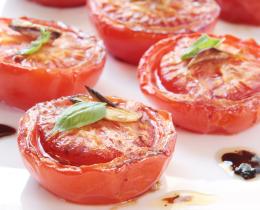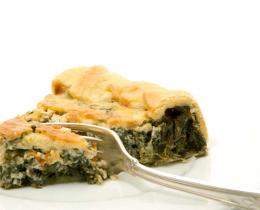RECIPE 3 minutes

Kale & Wild Mushroom Ragout
Kale offers excellent nutritional value, without a lot of calories. And it's one of those foods you can get year round, with the best flavor occurring during the peak harvest months of mid-winter through late spring. Frost makes kale even a bit sweeter. A cup of this dark leafy green gives you nearly double the daily amount needed of vitamin A, and it's packed with vitamin C, manganese, and dietary fiber. This delicious ragout works with any type of kale you find at your market, whether it's red, green, Italian, curly, or flat.
- Prep Time:
- 10 min |
- Cook Time:
- 25 min
Serves 6
Ingredients
-
Sautéed Kale:
1 bunch kale, stems removed, chopped into 1-inch strips
1/2 tablespoon garlic, minced
1 tablespoon vegetable oil -
Wild Mushroom Ragout:
3 tablespoons olive oil
1 pound portobello mushrooms, diced medium
1/2 pound crimini mushrooms, quartered
1 pound shitake mushrooms, stems removed, thinly sliced
1 cup red wine vinegar
1 tablespoon rosemary, finely chopped
2 tablespoon green onion, finely chopped
2 tablespoon fresh thyme, finely chopped
Directions
-
Begin by making the mushroom ragout. Heat the oil in a heavy-bottom pot over high heat. Add the mushrooms and stir frequently over medium-high heat until the liquid has evaporated from the bottom of the pot. Add the red wine vinegar and herbs. Season to taste with salt and pepper. Set the ragout aside and begin to sauté the kale.
-
Heat the oil in a sauté pan over medium-high heat. Add the garlic and stir until the aroma develops and it starts to develop some color (very light brown). Add the kale and stir until it is half wilted. Season with salt and pepper and remove from the heat. Keep in mind that one bunch of raw kale wilts down to about two cups of cooked kale. The final amount depends on how much wilting takes place.
-
Serve the mushroom ragout on a bed made with the sautéed kale or separately in bowls or on a platter.
© 2012 Omega Institute for Holistic Studies


